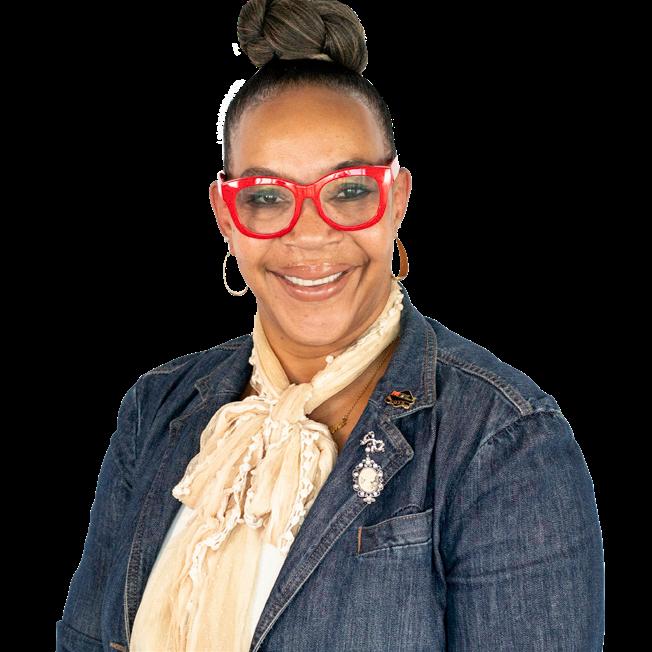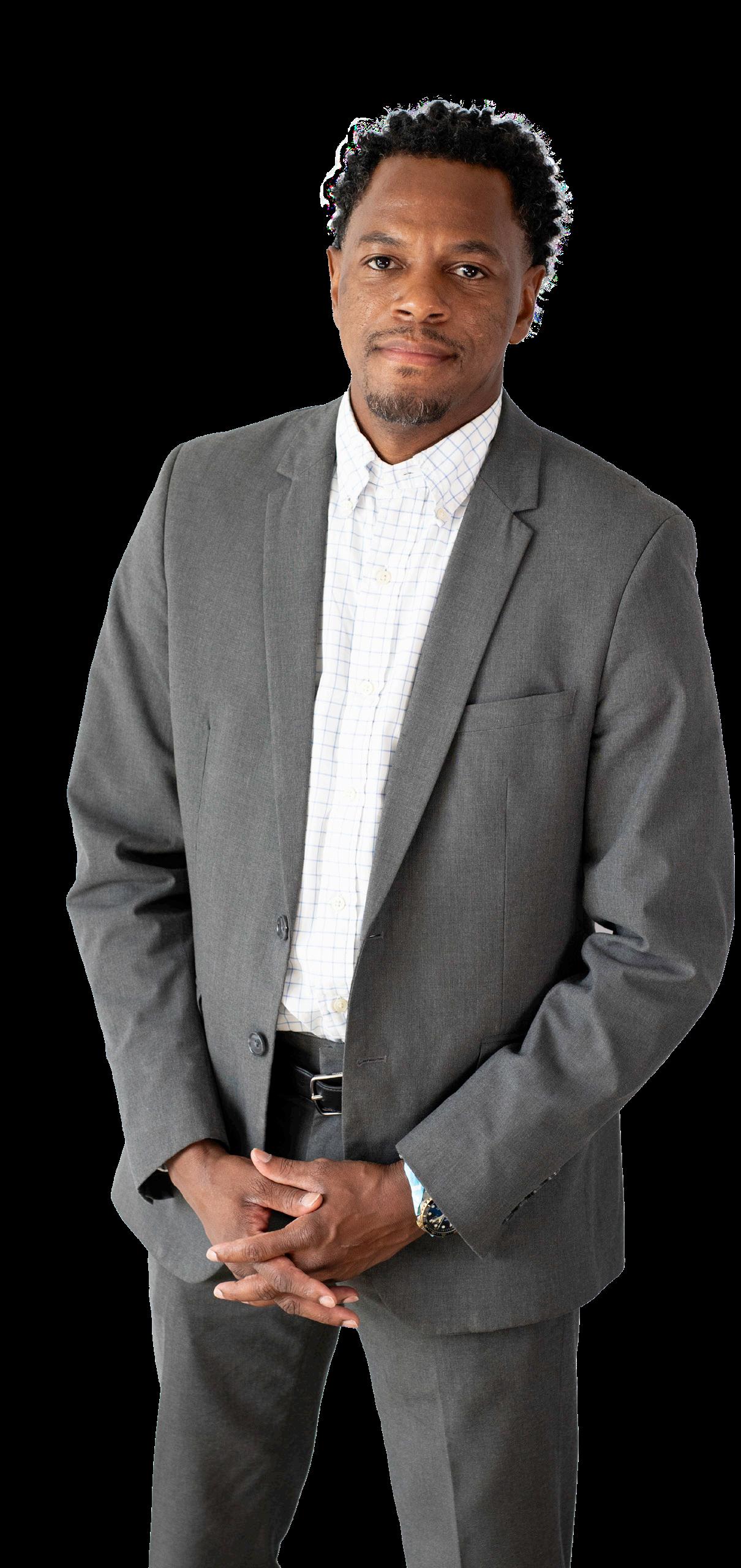



REDEFINING LEADERSHIP FOR A JUST AND EQUITABLE FUTURE





























































One Voice created the Mississippi Black Leadership Institute (MBLI) to promote an agenda of leadership development to achieve equity and justice for vulnerable and marginalized Mississippians, reaching even more communities with hope and sustainable change.
The MBLI opens doors of opportunity for emerging professional and community leaders by providing information, access, and support. Thus, the Institute seeks to equip its participants with vital leadership skills. To this end, the coordinators of MBLI, who organize and facilitate the program, working along with other experts, instruct the participants in the state of Black Mississippi, models of leadership, civic engagement, understanding governmental structures, education in Mississippi, women in leadership, and politics in law and business.
Each year for over a decade, at the invitation of One Voice, community members step up to take responsibility for becoming change agents by enlisting in the MBLI. For these leaders, it is not a superpower they possess but a willingness to respond to a call for a better Mississippi.
Each participant develops and executes a community transformation project as a part of their training experience. These projects allow them to take a big-picture look at community-based issues and provide solutions they can accomplish in the coming months that will be sustainable for years.
Since our inception, One Voice has worked intensely to explore rationales for and against public policy and the economic consequences of public policy, as well as provide a strong ethical foundation for formulating public policy. With each new graduating cohort of the MBLI, over a dozen new leaders add power to the policy and systems change movement for a more just and equitable Mississippi.
The Mississippi Black Leadership Institute will continue to provide our leaders with a unique skillset they will need to drive them and the communities in which they live, work, play, and worship forward.
Nsombi Lambright-Haynes Executive Director

“With each new graduating cohort of the MBLI, over a dozen new leaders add power to the policy and systems change movement for a more just and equitable Mississippi.”





Mississippi, initially colonized by the French in 1682, had indigenous communities like the Natchez caring for and inhabiting the land. The Natchez population declined due to diseases brought by Europeans and the oppressive acts of French colonists. In 1729, the Natchez Indians recruited enslaved individuals and revolted against the French, resulting in around 230 deaths. In 1731, an uprising led by enslaved African Samba Bambara was discovered and suppressed. During the Civil War, enslaved Blacks, including Solomon Gregory, escaped to the Ship and Horn islands, serving as important points on the underground railroad. Jones County also saw guerilla soldiers fighting against the Confederate army.


During Reconstruction in Mississippi, Black residents experienced a period of high hopes and opportunities for political involvement. This was a unique time in the state’s history, aside from the civil rights movement, where Black individuals had the chance to attain freedom through political means. They gained the right to vote, hold office, receive an education, and share in the state’s wealth. As a result, numerous Black leaders emerged, including Hiram Rhodes Revels, the first Black United States Senator, and James D. Lynch, the first Black person to hold a major political office in Mississippi. T.W. Stringer, a physician and minister, also played a significant role as a powerful political leader.





Life for Blacks in Mississippi before the Civil Rights Movement was characterized by pervasive racial discrimination, segregation, and widespread poverty. The lack of legal protection and the constant threat of violence created an atmosphere of fear and inequality for Blacks in Mississippi. Lynchings of Blacks were virtually legal and almost commonplace. However, Blacks in Mississippi did not passively accept their circumstances. Prominent individuals like Ida B. Wells-Barnett, a journalist and anti-lynching crusader, used their skills and activism to shed light on the conditions Blacks faced. Black schools and businesses in the South provided avenues for Blacks to gain influence and resources to fight for change. Figures like educators Arenia Mallory and Gladys Noel Bates and surgeon T.R.M. Howard played a prominent role in laying the foundation for the Civil Rights Movement in MS and mentoring future leaders.


Mississippi was home to several influential civil rights leaders who played pivotal roles in the struggle for racial equality. Medgar Evers, the state field secretary for the NAACP, tirelessly fought against segregation and voter suppression, ultimately losing his life to an assassin’s bullet. Fannie Lou Hamer, a sharecropper and activist, fearlessly advocated for voting rights and was a key figure in the Mississippi Freedom Democratic Party. James Meredith shattered racial barriers by becoming the first Black to enroll at the University of Mississippi. These leaders, among many others, bravely challenged the status quo and laid the foundation for the Civil Rights Movement in Mississippi.


As a result of the many accomplishments of the civil rights and Black power movements, Blacks began to see success in the fight for political representation and economic opportunity. Constance Slaughter-Harvey is a Forest, Mississippi native and Tougaloo College graduate who became the first Black female judge in Mississippi. Her efforts in Mississippi opened the door for Black men to serve as state troopers all across the US. Another Tougaloo graduate, Reuben V. Anderson, is a civil rights attorney who became the first Black person to serve as a justice of the Mississippi Supreme Court. Elected mayor of Tchula in 1977, 28-year-old Eddie Carthan was the first Black mayor of a Mississippi Delta town since Reconstruction. Hollis Watkins Muhammad and Leroy Johnson, activists who wanted to see the community organizing of the civil rights era continue in Mississippi, co-founded Southern Echo to assist local groups in building and exercising power.



Our social justice organization is deeply committed to the community, and all our efforts revolve around understanding and addressing the issues that impact their lives through thorough research.
We believe in empowering individuals affected by injustice, providing them with the knowledge and tools through various training opportunities so they can become change agents for their communities and advocate for their rights.

Pursuing excellence is our constant goal, reflected in our dedication to developing leaders ready to serve, creating effective tools, and providing high-quality training to maximize our impact in the fight for justice.
At the heart of our organization lies the recognition that meaningful partnerships are essential for our sustainability. We actively cultivate and foster mutually beneficial collaborations, enabling us to achieve our social justice objectives alongside our partners.













AGENDA SETTING POLITICAL EDUCATION


RELATIONSHIP BUILDING SKILL DEVELOPMENT




POLICY & SYSTEMS CHANGE

LEADERSHIP DEVELOPMENT


POLITICAL WILL
PRESERVATION & SUCCESSION 11

CIVIC ENGAGEMENT
COMMUNITY POWER


COLLECTIVE ADVOCACY


REDEFINING LEADERSHIP FOR A JUST AND EQUITABLE FUTURE


We welcome those with experience and passion for networking with and mobilizing their fellow community members to support a cause, initiate a program, or advocate for specific changes to be made.
We use political education to empower participants through continuous learning and analysis of the world around us. It involves developing a shared understanding, language, and vision of definable politics, as well as recognizing connections between power structures and public policies. With confidence in our politics, historical knowledge, and analysis, we can engage in high-level discussions and simplify complex ideas. Political education teaches participants to take risks, challenge power, and be reflexive about authority in addressing community needs.
We welcome those who have worked in public service through government agencies and have knowledge of the opportunities to improve public systems, such as education, health, and urban planning.
We help participants individually and collectively identify their top priorities as agents of change. With an almost endless list of changes needed for a more just and equitable Mississippi, the agenda-setting process helps narrow that list by examining key considerations such as the community impact, political will, and economic implications.
We welcome people with experience in the private sector as owners or workers who believe that businesses have a stake in the fight for a just and equitable Mississippi.
We welcome researchers, educators, and historians who can leverage their expertise to provide compelling data to support the movement for justice and equity in Mississippi.
We provide essential skills training for MBLI participants to become even more effective in their advocacy and political leadership, including legislative analysis, community organizing, base-building, and non-violent direct action tactics. Equipping leaders with these key skills is essential in enacting policy and systems change in Mississippi.
A critical component of being an effective leader and change agent is establishing trust and common goals with various stakeholders. We facilitate opportunities for participants to develop strong relationships with fellow cohort members, MBLI alumni, and leaders across the state that represent government, business, and community organizations.

We cultivate and empower individuals with essential skills, relationships, and knowledge to become agents of change in their communities.
By empowering individuals to be agents of change, we will boost civic engagement in the forms of Black voter turnout, presence at community events, participation on local boards and commissions, and dialogues on political matters in person and online.
In a true democracy, elections are one of the greatest expressions of community power. By increasing civic engagement, we believe we will ultimately increase the power of the community as well as improve political representation by electing leaders that will center our voices and values in their decision-making.
We believe that with strong community power and aligned political representation, we can engage in successful advocacy —calling for specific actions to be taken by decision makers— with greater force. Such decision makers include local and statewide legislators, judges and prosecutors, and public agency directors, among others.
We believe that once policy and system changes are achieved, preserving those transformations, as well as community leadership is integral to making serious advances toward justice and equity. Ensuring these changes survive legal challenges, attempts to repeal, budget cuts, and implementation requires continued expressions of leadership development, civic engagement, and community power. Thus, the succession of leaders through a strong communitybased leadership development pipeline is critical for the future of Mississippi.
With enough political will established for each desired goal, we believe it will result in positive policy and systems change. The realms of change necessary and possible are vast and wide, as Mississippians are ready to see transformations in public education, law enforcement, healthcare, the economic landscape, and the housing sector.
We believe our collective advocacy will result in developing the political will of necessary stakeholders, who must believe that moving in alignment with the community, as opposed to the private sector or the status quo power structures, will have fewer negative consequences than the latter. This requires the community to keep its promise to hold decision-makers accountable for their actions.

Participant Referrals


Invitations to Apply Review & Selection

Guest Trainers & Speakers

Anti-Racist Approach


Knowledge & Skill Development

Monthly Training
Session

Relationship Bulding
New Cohort Orientation


Interactive & Participatory Approach
Reading List



Mentorship

Community Transformation Projects Graduation

Alumni



As a way to maintain community cohesion and alignment within MBLI, we ask for referrals for potential participants by MBLI alumni. Alumni are asked to provide the name and contact information of individuals they know who exhibit strong leadership potential, community-oriented values, and an interest in a deeper form of civic engagement.
After reviewing referrals provided by MBLI alumni, we send out invitations to apply to MBLI. We believe an invitation-only strategy enhances the sense of honor and tradition associated with the history of Black community leadership in Mississippi.
We create an applicant review committee consisting of One Voice staff and MBLI alumni to assess applications and make decisions on selected participants for each new cohort. Applications are reviewed based on their responses regarding history of community service, desired leadership development goals, and autobiographical experiences.
Each year, we hold a weekend orientation in alignment with the National Black Caucus of Black Legislators’ Mississippi Policy Conference, which provides our participants an opportunity to meet Black policymakers from across the state and engage in conference sessions related to state and local public policy.
Each participant is required to propose, design, and implement a project they believe will transform their community. The Community Transformation Project provides participants with an opportunity to leverage and demonstrate concepts they learned, relationships they developed, and analytical skills they gained in the program.
Each MBLI participant that completes the program can participate in a graduation event where they share their community transformation project and are celebrated by fellow MBLI alumni, their families, and the community.
Graduates of MBLI are provided with engagement opportunities throughout the year, including participating in One Voice community action efforts, participating in the applicant invitation and review committee, networking events, and engaging with future MBLI cohorts as a mentor or guest speaker.

Over the course of nine months, we provide monthly weekend training sessions that participants are required to join.
MBLI training sessions focus on developing critical skills and knowledge required of community leaders, such as legislative analysis, community organizing, base-building, and non-violent direct action tactics.
MBLI training sessions are both interactive and participatory to encourage optimum engagement and experiences for participants. This includes requiring participants to lead discussions, give presentations, share their personal experience and professional expertise where possible, and use of factual political challenges and nonfiction teaching materials.
The MBLI fosters mentorship between cohort members, alumni, instructors, and staff. Alumni, instructors, and staff are encouraged to offer additional support, advisement, and insights to MBLI participants as needed.
MBLI participants engage in a set of shared readings as a part of their experience. These readings are considered necessary pathways to understanding Mississippi history, democratic processes, political and legal barriers to justice, essential qualities of leadership, and the real-life impacts of public policy.
We ensure MBLI participants have ample opportunity to build relationships with one another, as many of them will become professional collaborators and supporters of one another in the future. To do this, we conduct specific exercises in training sessions to compel interpersonal bonding and facilitate group study and assignments throughout the program.
In addition to receiving instruction from our incredible team at One Voice, MBLI participants also get to learn from guest speakers and guest trainers on topics such as running for office, campaign development, and relevant research on pressing issues in Mississippi.
Embedded in our approach is helping participants identify systemic and structural racism and how to actively change policies, behaviors, and beliefs that perpetuate racist ideas and actions.
























19 REDEFINING LEADERSHIP FOR A JUST AND EQUITABLE FUTURE





“We talk about being a leader, being out in front, but some leaders are not always out in front.
Leaders are also behind the scenes, moving pieces around to accomplish goals. There are various forms and attributes of being a leader. MBLI has given me the information to become a solid leader by understanding what the needs are of the various communities that we represent to make Mississippi better than it is now.”

Chris Bell is a member of the Mississippi House of Representatives, representing the 65th District, which covers northern communities in the city of Jackson. Originally from Chicago, IL, he attended Jackson State University and has a background in the insurance industry. He participated in the 2012-2013 cohort of MBLI and was elected to office in 2015. Regarding the power of the MBLI community, he says, “Through all of our MBLI cohorts, you find the common denominator is the bond of friendship and how individuals have learned to work together and move the needle quietly but loudly. That’s what I love.”
In 2019, representative Bell and other MBLI alumni leaders co-founded the Institute for Advancement of Minority Health in Mississippi. “One of the greatest issues our communities are facing is food deserts and pharmacy deserts. Many residents don’t have a grocery store within a mile and a half from their home, nor a pharmacy like a CVS or Walgreens nearby. That’s one of the problems I am trying to address.”

“Mississippi, we’re the pride and soul of the South. Everyone’s always looking at us to see what impacts we’re making when it comes to change. Our leadership is in the fight. I mean, we have the best lawyers, the best doctors, the best to me, everything. So, us coming together through MBLI to make sure that we’re organizing to make it change is really awesome.”

Catherine Robinson is a program manager at One Voice and a former union rep for the City of Jackson under the Communication Workers of America. Her Community Transformation Project in MBLI focused on clean water advocacy and working with residents to understand the impacts of climate change and natural disasters and how they can affect the water supply. “My definition of a great leader is someone that’s not trying to gain power for power’s sake but is trying to gain the power to make a change within their community. They’re holding themselves accountable for anything or any issues that are occurring, but also looking for the best interests of their residents.”

Kiyadh Burt is the Policy Director at Hope Policy Institute (HOPE). In his career, he has focused on community and economic development, consumer protection, and financial inclusion for vulnerable communities in the Deep South. He joined the 20202021 cohort of MBLI as a way to find collaborators for systemic change work. “Many of these unsung heroes of the civil rights movies, of the movement of the fifties and the sixties and well into the seventies and eighties; I think what I appreciated the most is that we are in the same pipeline that created them. We are part of that same zeitgeist, that same genealogy, if you will, of being the next in line to continue the legacy of revolutionary resistance in the state.”
“What I gained from MBLI is really understanding that as much as I may have an opportunity to lead, that doesn’t necessarily qualify me to do the work. The title doesn’t qualify you; the people do. So, figuring out how to get that validation from the people you say you want to represent is absolutely vital and critical to being effective in a space of leadership.”

“MBLI has brought the intergenerational piece of what we need. I was able to learn from millennials as well as baby boomers who were in my cohort. There was such great diversity in our backgrounds; people who worked in education, in politics, and as entrepreneurs.”

Machelle Shelby Kyles is the Mobility Manager for Nroute Transit Commission. She has a deep background in local and state politics as well as public administration. After participating in MBLI, Machelle was inspired to run for state representative in Bolton, MS. “I had members in my cohort encourage me, and say, ‘Michelle, you are the candidate, you can do this, you can run for office one day.’ This was what I needed. And that motivation, not only the words but also the financial support, and the in-kind labor to start coalition building at that time, really helped.”

Treshika Melvin is a community advocate and power-builder. She has worked on behalf of vulnerable communities to advance equity through various organizations, including Springboards to Opportunities, the Southern Poverty Law Center, and the United Way of the Capital Area. She is passionate about improving Mississippi’s education system and focused her community transformation project on a community coalition to improve Jackson’s public schools. “Mississippi is a beautiful and complicated place. And to create the change that we want to see, we need leaders who are bold, who are accountable and transparent to the community, who are intentional about engaging community.”
“I think that oftentimes, we can think that struggles are new or experiences are new or the challenges that we are facing just pop up. But MBLI is so intentional about helping kind of build that timeline back to understand players and positions and politics and structures that have always been in place and how they may show up in new ways now. There is nothing new under the sun.”

“One of the key values I learned was being there for people and being accountable for your actions. And when people actually take the time to step up in support of you because of your relationship through MBLI, it is huge. The impact comes back tenfold.”
Lenderrick Taylor is a native of Canton, MS. He is a Capital Defense Attorney in the Mississippi Office of the State Public Defender, and serves on the Board of Trustees for the Canton Public School District. Following graduation from Mississippi College School of Law, he served as a Judicial Law Clerk and later as an Assistant Public Defender for Hinds County, Mississippi, where he represented indigent clients charged with a felony within Hinds County. “MBLI allowed me to get in a room with like-minded individuals, people that I would have never come across in my daily job. That’s critical because being a community advocate or or a policymaker, you can’t do the work by yourself.”




